The Complete Guide to Nile Cruising in Egypt
One of Egypt's most famous experiences is Nile cruising.
Without the Nile, Egypt's vast Pharaonic culture would not have persisted and
developed through the ages, controlling so much of what we know about the
ancient world of the eastern Mediterranean. Take an Egypt Nile Cruise.
It's also a taste of Egypt at its most lush and serene and an up-close look at the country's rural riverine beauty.
Before you go to Egypt, utilize our comprehensive guide on
the Nile river cruise Egypt to help you organize your trip.
Source
This Page Containing:
The Nile Cruisers
Onboard Life
Routes & Itineraries for Nile Cruisers
Dahabiyas: A More Personalized and Intimate Nile Cruise
Routes and Itineraries in Dahabiya
Feluccas: An Alternative to Adventure Travel
Itineraries & Routes for Feluccas
Felucca Tours on a Budget
The Nile Cruisers
The most common method to cruise the Nile is in one of the
giant Nile cruiser boats.
Consider a Nile cruiser to be a floating hotel. A sundeck
(or sundecks) with a pool and restaurant are standard aboard facilities.
Like hotels, there is a wide range of Nile cruiser options,
with prices and amenities varying wildly.
Some of the best deluxe boats (typically operated by or in
collaboration with five-star international hotel companies) offer a luxury
cruise experience replete with onboard spa facilities, opulently furnished
accommodations, and gourmet meals.
Mid-range boats will still provide excellent service, but
the décor will be considerably less magnificent (and cabin space will likely be
much smaller), and there will be fewer onboard amenities.
Some of the most affordable Nile cruisers can be run down
and should be avoided if you want a relaxing cruise experience.
The M/S Sudan, one of the original Nile tourist steamships,
provides a particular historical cruise stay and the unique opportunity to
cruise onboard one of the first Nile tourist steamships, recently renovated for
contemporary conveniences but still teeming with 19th-century charm.
Nile cruisers typically carry between 50 and 100 passengers
implying that you will always see tourist destinations in a large group on your
included excursions. If huge group trips aren't your thing, think again before
booking a Nile cruise.
Onboard Life
Nile cruiser packages often include all meals and a variety
of onshore activities.
For example, excursions to Edfu Temple and Kom Ombo Temple,
as well as a tour of Luxor's prominent West Bank monuments, are included on the
most popular Luxor-Aswan boat itinerary.
In the evenings, a variety of extra entertainment is
available onboard. Depending on the trip, this might range from musical
entertainment to Egyptology lectures.
Because they're corralling a large group, onboard timetables
are controlled, as they are on all cruises. All excellent Nile cruisers
publicize their schedules, so you can see if the itinerary suits you before
booking.
The style of cabin lodging varies greatly. Cabins on more
deluxe-style boats include large picture windows that take advantage of the
Nile vistas.
Lower deck rooms are often the least expensive cruise choice
because your view will be obstructed. If cabin views are essential to you,
paying the extra for an upper deck accommodation is justified.
Routes & Itineraries for Nile Cruisers
The most common Nile cruise route is from Luxor to Aswan,
with trips departing from either end.
This itinerary is typically three or four nights long, with two
of those nights spent at port onboard at your starting and conclusion points.
Take note that you will spend more time than anticipated at
the port. The river's actual boating time is restricted.
A typical itinerary for a Luxor to Aswan or Aswan to Luxor
cruise includes a guided tour of the picturesque Valley of the Kings and
Hatshepsut's Temple on Luxor's west bank and the Temple of Karnak on Luxor's
east bank, stops along the river at Edfu and Kom Ombo for guided tours of the
Temple of Horus and the Temple of Kom Ombo; and a guided tour of Philae Temple
at Aswan.
Optional excursions to the Temples of Abu Simbel are
typically accessible when moored at Aswan, while hot-air ballooning is usually
provided as an optional extra in Luxor.
Some Nile cruise lines provide lengthier cruises along this
route, such as a seven-night Luxor to Aswan cruise package.
It's worth noting that the included guided tours and pauses
on these longer cruises remain the same, while a stop at Esna for a guided tour
of the Temple of Khnum is frequently tossed in.
These lengthier trips provide a less hurried Nile cruise
experience, with a schedule that sails from Luxor to Aswan and then back to
Luxor (or vice versa), allowing for more time spent sailing the river and more
spaced-out offshore guided tours of the temples.
The Cairo to Luxor or Luxor to Cairo route is even more
intriguing if you're searching for a lengthier Nile cruise.
This itinerary typically lasts between nine and eleven
nights. This trip usually goes on to Aswan, so you may also include it.
Compared to the number of boats traveling up and down the
Nile between Luxor and Aswan, just a few Nile cruisers travel the whole river
path, and there are far fewer sailings throughout the year.
This itinerary is a historical buff's dream, taking in all
the key Ancient Egypt tourist destinations along the Nile between Cairo and
Luxor.
Typical stops along the route (from north to south) include
Beni Suef, where you can see the Pyramids of Maydom and Hawara; Minya, where you
can see the archaeological sites of Tell Al-Amarna, Tuna Al-Gebel, and Beni
Hasan; Sohag, where you can visit Abydos and its Temple of Seti I; and Qena,
where you can see Dendara.
As with Luxor to Aswan cruises, sightseeing trips at the
locations of embarkation and disembarkation are usually included. This is
generally a guided tour of the Giza Pyramids and the Egyptian Museum in Cairo.
Dahabiyas: A More Personalized and Intimate Nile
Cruise
A dahabiya is the most exclusive method to cruise the Nile.
These sailing boats are full of personality and harken back to the early days
of Nile tourism before steamboats began operating the river; all of the great
19th-century Nile visitors, including Gustave Flaubert and Florence
Nightingale, traveled aboard dahabiyas.
The boats typically carry between 10 and 20 passengers.
What you sacrifice in terms of facilities (no restaurant or swimming pool onboard), you make up for in terms of personal service, itinerary flexibility, and a lack of crowds.
Dahabiyas are a fantastic option for the larger Nile
cruisers if you prefer a more personal Nile cruise experience while still
having the amenities of a cabin.
Instead of spending the night at a congested Nile cruiser
port, dahabiyas typically anchor at Nile islands, allowing guests to experience
the Nile most peacefully.
It's worth noting that there are fewer options for boats and
sailings than with Nile cruisers, so plan ahead of time.
Due to the tiny size of dahabiyas, you may even arrange a
fully private dahabiya cruise if you are traveling in a group.
Like Nile cruisers, all meals (served communally on a
dahabiya) are included in the cruise ticket, although guided excursions and
admission costs to tourist locations vary by cruise operator. Always compare
and contrast timetables and inclusions.
Routes and Itineraries in Dahabiya
Dahabiyas normally sail a three-night or four-night trip
between Esna (58 kilometers south of Luxor) and Aswan (with departures possible
from either end). The cruise fee includes transfers from Luxor to Esna.
Because of their modest size, these sailing boats may dock
at locations along the Nile that larger Nile cruisers cannot, hence itineraries
include exciting landmarks and sites that larger Nile cruisers miss.
A typical three-night dahabiya schedule with guided tour
excursions may include visits to Edfu's Temple of Horus and Kom Ombo Temple, as
well as stops at surrounding riverbank towns, Gebel El-old Silsila's quarry and
monuments, and Daraw's camel market.
Feluccas: An Alternative to Adventure Travel
Feluccas are Nile's classic single-lateen-sail boats and are
more adventurous Nile cruises. What you give up in conveniences, you make up
for in scenery, starry evenings, longer time on the river, and a close-up look
at river life.
Feluccas may accommodate up to eight guests and are crewed
by two to three people who sail and cook throughout the voyage.
Onboard, there often needs to be restrooms. Passengers expect
to shower when they exit, and when passengers need a restroom break, the
felucca anchors at a Nile island or bank.
At night, passengers sleep on the cushioned deck. It's a
good idea to pack a sleeping bag. However, feluccas usually have plenty of
blankets available if necessary.
Meals are basic but excellent Egyptian home-style cookery,
frequently vegetarian because the onboard icebox is the sole refrigeration.
Life is reduced to its most basic elements on a felucca, so
don't anticipate Wi-Fi or power. Candle lanterns illuminate the felucca at
night. At the same time, daytime sailing activities consist primarily of
relaxing on deck, admiring the landscape, or reading, with plenty of time for
swim stops.
A felucca cruise does not include guided excursions or
monument fees. Felucca cruises are reasonably priced, and the ticket generally
includes felucca transportation, food, and many cups of tea.
Unlike Nile cruisers and dahabiyas, felucca trips are often
organized and booked in Aswan.
Before accepting, always inspect the boat and discuss
available facilities. For example, some feluccas may equip their boat with soft
drinks and water to sell to guests, while others would ask customers to carry
these extra supplies with them.
Itineraries & Routes for Feluccas
Feluccas leave Aswan and followed the flow of the Nile.
Journey itineraries are often advertised as one-night, two-night, or
three-night cruises.
ASWAN
Itineraries are relatively leisurely (sailing pace is
entirely dependent on wind and weather conditions) and customizable, including
stops at local villages and less-visited sights along the river like Gebel
El-Silsisa.
The one-night option covers nearly two full days on the
river, making it an excellent alternative if you want to look closely at Nile
life but are curious whether you can stomach a long time without creature
comforts.
KOMO OMBO TEMPLE
The Kom Ombo Temple is the destination for one-night felucca
cruises. The two-night felucca cruise is the most popular choice, with stops at
Kom Ombo and Edfu for the Temple of Horus. Three-night cruises dock at Esna.
Transfers to Luxor (or back to Aswan) at the end of the tour
can be included in the cruise ticket; however, because feluccas are all managed
independently, all inclusion details must be agreed upon before departing.
Felucca Tours on a Budget
If you like felucca travel but don't believe you'd be
comfortable on an overnight felucca tour, don't worry: you can cruise the Nile
in this traditional way on a day excursion.
Luxor and Aswan are both popular locations for short felucca
journeys, which are often charged by the hour.
While docked at Aswan, several Nile cruiser itineraries
include a brief felucca ride around the islands as one of their planned
excursions.
Short Aswan felucca trips loop around the islands,
frequently stopping at Kitchener's Island and on the west bank at St. Simeon's
Monastery. Travel south to Seheyl Island for a lengthier felucca trip.
Plan your trip for shortly before sunset for the finest
picture opportunities.

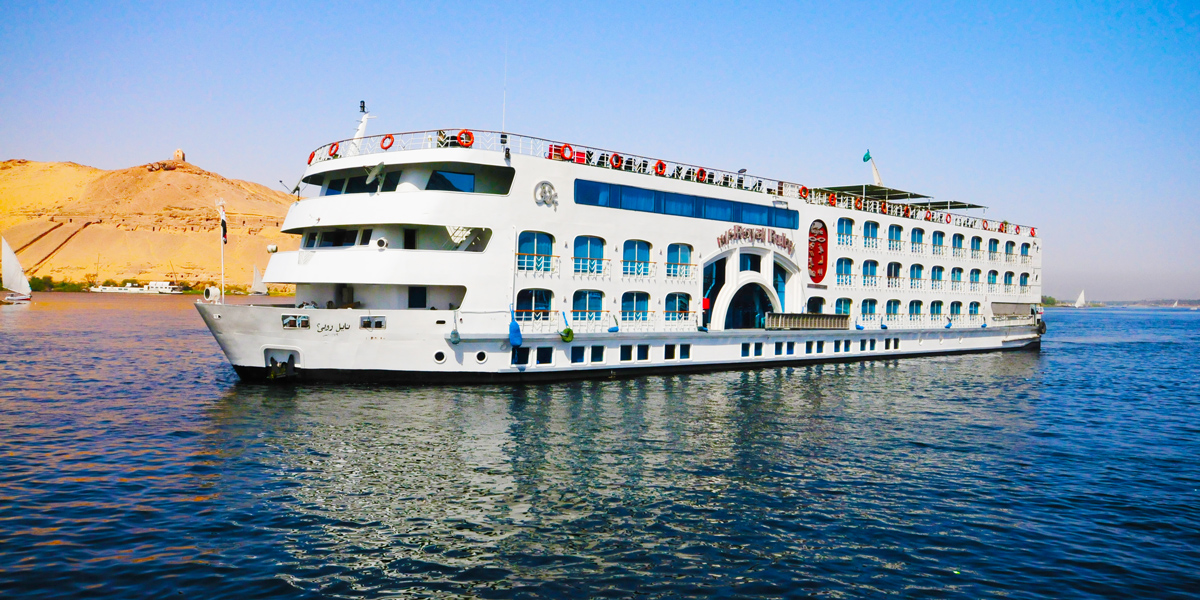
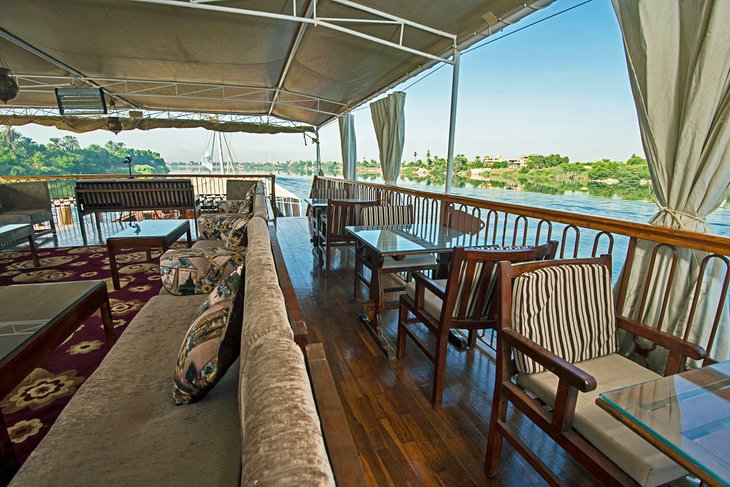
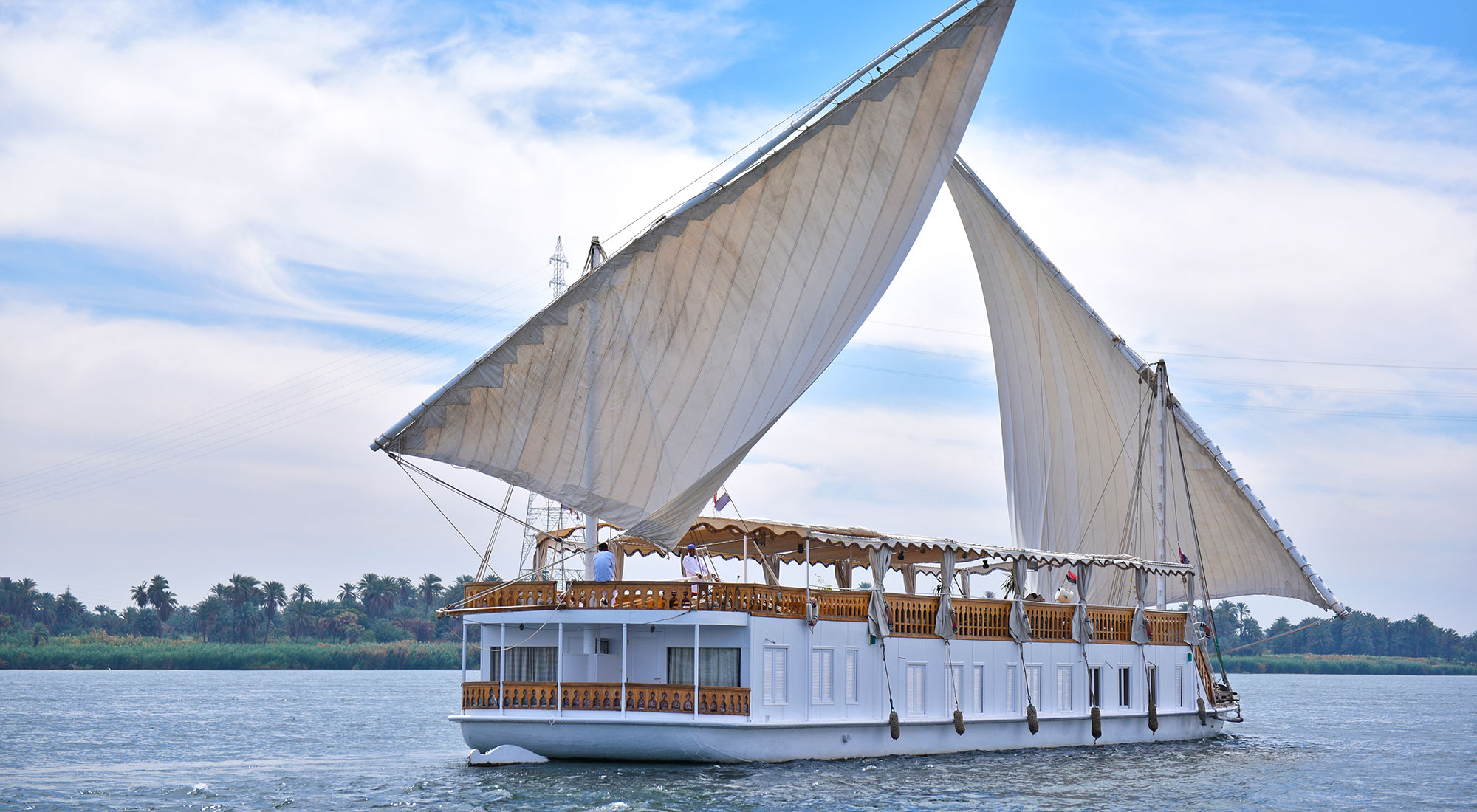


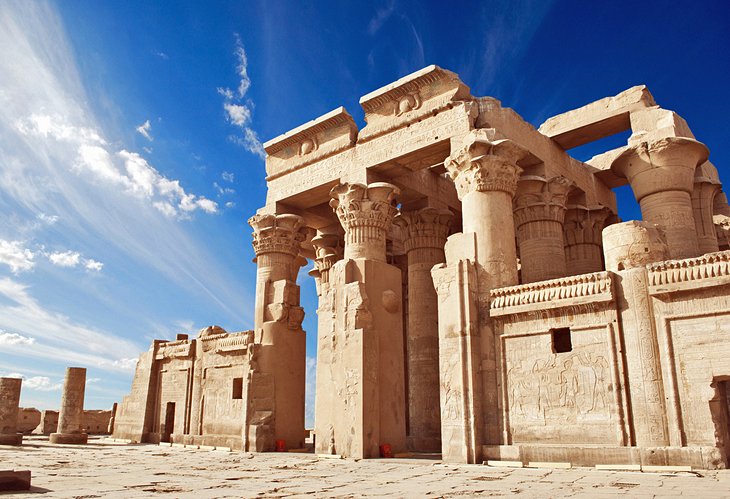
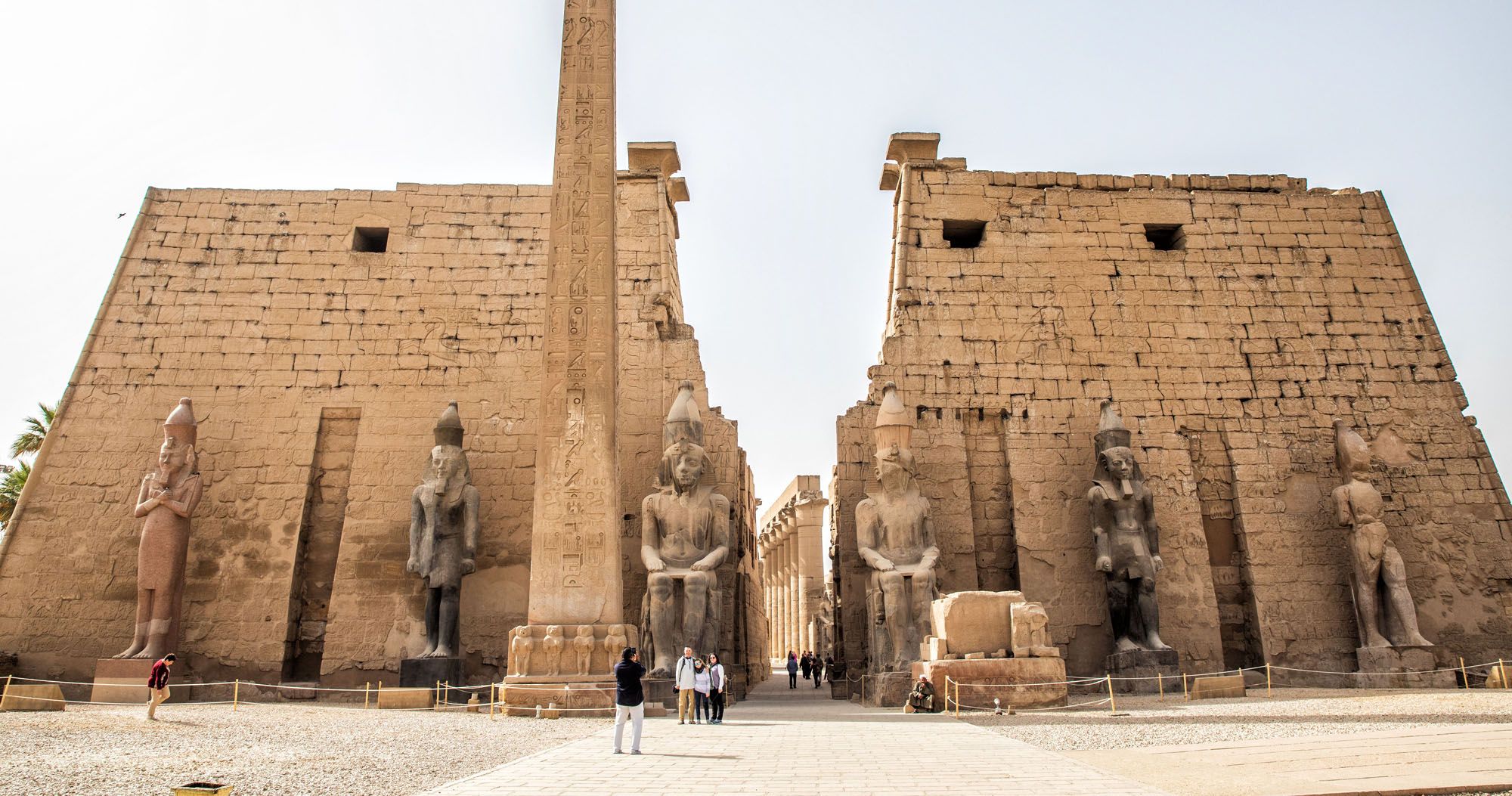
Comments
Post a Comment